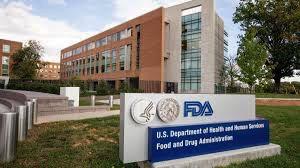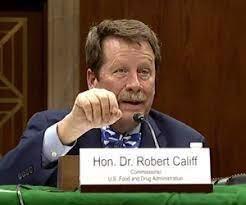 Responding to extensive criticism and Congressional pressure, the FDA Commissioner, Dr. Robert M. Califf, has released proposals to reorganize the food-related activities of the Agency. The principal changes will conform to the recommendations of the Reagan-Udall Committee that reviewed structure and function following a series of public health crises: -
Responding to extensive criticism and Congressional pressure, the FDA Commissioner, Dr. Robert M. Califf, has released proposals to reorganize the food-related activities of the Agency. The principal changes will conform to the recommendations of the Reagan-Udall Committee that reviewed structure and function following a series of public health crises: -
- The Agency will appoint a Deputy Commissioner for Human Foods responsible for all food-related activities. This is a reversion to an earlier functional organizational structure that was changed by Dr. Scott Gottlieb during his brief tenure at the FDA.
- A unified Human Foods Program (HFP) will be developed with an Office of Regulatory Affairs (ORA) responsible for investigations, inspections and oversight of imports.
- The FDA will appoint an Associate Commissioner for Regulatory Affairs to lead this Office
- Compliance functions currently within the Office of Regulatory Affairs will be merged with the Human Food Program to expedite decisions. The eight Human and Animal Food Laboratories managed by the ORA, will be incorporated into the HFP and will operate in conjunction with the four current FDA Center for Food Safety and Applied Nutrition facilities to create a single food laboratory capability functioning within the Human Food Program.

- Activities currently under the Office of Security and Emergency Management will be transferred from the Office of Operations to the Office of Regulatory Affairs.
- Cooperative functions involving state and local food safety agencies will be managed through an Office of Integrated Food Safety Systems Partnerships. This entity will be located within the Human Food Program.
-
 Although Dr. Califf is making changes in accordance with recommendations made by the Reagan-Udall Committee, there is a whiff of reluctance to make the necessary radical changes to ensure effective function. The previous recommendations for reorganization were essentially rearranging deck chairs on the Titanic. It is questioned whether the Commissioner should establish a firm organizational structure and assign responsibilities and functions before appointing the responsible Deputy Commissioner. Surely, the objective should be to appoint the best possible person available, willing to assume the responsibility, and allow the incumbent to structure the food-related activities according to the challenges facing the Agency. Appointing a Deputy Commissioner after the effect will possibly reduce the available pool of qualified candidates and when appointed, hamper ability to effect changes both in culture and function.
Although Dr. Califf is making changes in accordance with recommendations made by the Reagan-Udall Committee, there is a whiff of reluctance to make the necessary radical changes to ensure effective function. The previous recommendations for reorganization were essentially rearranging deck chairs on the Titanic. It is questioned whether the Commissioner should establish a firm organizational structure and assign responsibilities and functions before appointing the responsible Deputy Commissioner. Surely, the objective should be to appoint the best possible person available, willing to assume the responsibility, and allow the incumbent to structure the food-related activities according to the challenges facing the Agency. Appointing a Deputy Commissioner after the effect will possibly reduce the available pool of qualified candidates and when appointed, hamper ability to effect changes both in culture and function.

The problems that have emerged with safety of infant formula, deficiencies with respect to inspection and regulation of imported foods, failure to resolve the problem of contaminated leafy greens, the presence of heavy metals in infant foods, neglect of nutritional standards to reduce metabolic disease and other deficiencies clearly point to a need for a new agency dedicated to food safety and nutrition and separate from the existing Food and Drug Administration. Ultimately, the best interests of U.S. consumers would be served by an agency integrating all aspects of food and nutrition and combining the present red meat and poultry jurisdiction of the USDA FSIS with the current food and nutrition responsibilities of the FDA.